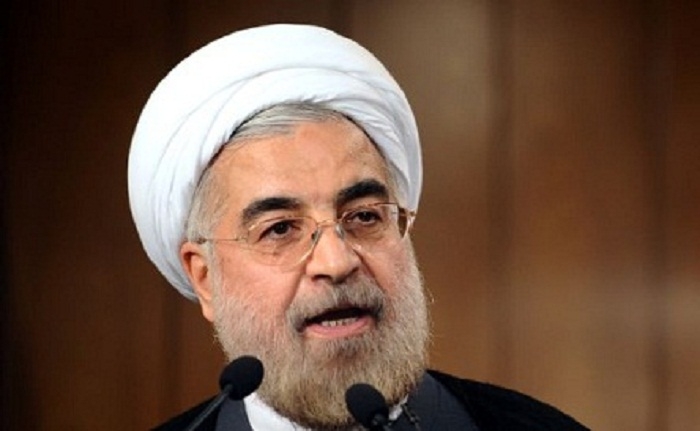Contrary to Washington's expectation, US pressures on Iran have made all parties and groups in Iran to look on the US as the sole culprit of causing the problems in various fields, said President Rouhani.
Rouhani said that the Joint Comprehensive Plan of Action (JCPOA) was the best deal, adding that several reports of the International Atomic Energy Agency (IAEA) has verified Iran's compliance with its commitments, despite the US withdrawal from the deal, which shows that Iran does not seek to deviate from the International Law and regulations concerning the nuclear program.
He said that Iran is ready to prepare for immediate ratification of the Additional Protocol in Majlis (the Iranian Parliament) as a permanent law, in exchange for the US Congress' approval of the JCPOA and permanent lifting of all sanctions.
Referring to the chaotic situation of the region, President Rouhani said the people of Yemen are under heavy bombardment provided by the US and some European countries.
He added the countries that judged the Arabian-American Oil Company (Aramco) incident and accused Iran, are not neutral in Yemen conflict and have no right to judge. These policies need to be revised so that such methodology of dealing with the international issues can lead to disaster.
President Rouhani said that there are two things one should know about Iran: First, Iran does not and will not seek nuclear weapons. Second, as I detailed in the address to the UN General Assembly on the Hormuz Peace Endeavour (HOPE) coalition, Iran has been and will continue to be after peace and stability throughout the region and welcomes other countries to join the coalition.
In response to a question, President Rouhani cited to the present dangerous situation in the region and said that avoiding conflict is everybody's duty now,.
In reaction to the US officials' accusation to implicate Iran in the drone attacks on Aramco, he asked, "Instead of accusing Iran, Why don’t those who publish a photo of a minor incident in Iran provide their proofs and precise satellite images of the origin of the attacks, rather than accusing Iran?"
Regarding prisoners, in another part of his speech, Rouhani described the issue of prisoners as a humanitarian one, which would have a positive effect on both sides.
He said that though Iran does not agree with Zionism whatsoever, it has a good relationship with the Jews. They are living freely in Iran. Judaism is revered as a divine religion, and the Holy Quran mentions the Jewish prophets, as well as Jesus Christ and Saint Mary with respect.
Iran is not looking for war and killing others, but it is the Zionist regime that has repeatedly violated the sovereignty of its neighbors. And, according to its prime minister, it has violated the Syrian territory more than 200 times, he said.
He added that these measures are very dangerous and, according to the UN Charter, the people of the region have the "right to self-defense".
President Rouhani emphasized that the policy of pressure would not work on Iran, and that it was the US that left the negotiation table with its unilateral withdrawal from the JCPOA, and that it is the US that should provide the conditions for negotiation.
President Rouhani, who is New York to attend the 74th United Nations General Assembly (UNGA) said in his speech, " Based upon the historical responsibility of my country in maintaining security, peace, stability and progress in the Persian Gulf region and Strait of Hormuz, I would like to invite all the countries directly affected by the developments in the Persian Gulf and the Strait of Hormuz to the 'Coalition for HOPE', meaning Hormuz Peace Endeavour."
"The goal of the Coalition for Hope is to promote peace, stability, progress and welfare for all the residents of the Strait of Hormuz region, and to enhance mutual understanding and peaceful and friendly relations among them."
He said, "This initiative includes various venues for cooperation, such as the collective supply of energy security, freedom of navigation and free transfer of oil and other resources to and from the Strait of Hormuz and beyond."
"The Coalition for Hope is based on important principles such as compliance with the goals and principles of the United Nations, mutual respect, equal footing, dialog and understanding, respect for territorial integrity and sovereignty, inviolability of international borders, the peaceful settlement of all disputes, and more importantly, the two fundamental principles of non-aggression and non-interference in the domestic affairs of each other. The presence of the United Nations is necessary for the creation of an international umbrella in support of the Coalition for Hope."
















































